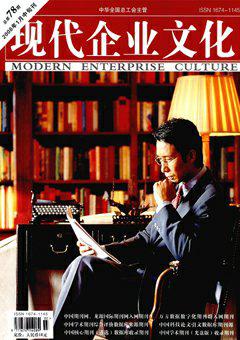动物世界在英语习惯用语中的翻译
【摘要】文章主要介绍了与各类动物有关的英语习惯用语的翻译,把它们分为陆地上、水中、天空中的三类,并着重介绍了狗、家禽、鸟、鱼等相关习语的翻译。
【关键词】习惯用语;英语翻译;动物习语
【中图分类号】 H313【文献标识码】A
【文章编号】1674-1145(2008)02-0111-02
汉语中许多优美的诗句中描写了各种动物:“柴门闻犬吠,风雪夜归人”;“千山鸟飞绝,万径人踪灭”;“路人借问遥招手,怕得鱼惊不应人”……西方人说:动物是另一种形态的人。它们是人类的朋友,依赖着人,忠诚于人。各种动物,天上飞的,地上跑的,水里游的,到狮子老虎,小到蚊虫跳蚤,在人们的日常用语中频繁出现,使表达更贴切、更生动。
“狗”,在汉语中常常带有贬义。要是把人比喻成狗,那是对一个人的极不尊重。有很多西方人都喜欢狗,认为狗是人类最好的朋友。人和狗在一起亲密相处。所以,在英语中,狗,恐怕是英语习惯用语中出现最频繁的词语了。不过,这其中褒义、贬义的都有。 “top dog ”指的是就是狗群里地位最高、领头的那一只。所以如果我们说某人是”top dog”,我们指的是有支配地位的,有最高权利的人。例如:Thought still a young man, he is already top dog in his firm.尽管年轻,他已在公司掌权了。 “every dog has his day ”指的是每个人都会有实现自己愿望的一天。例如:Don't lose your hope, every dog has his day.不要灰心,每个人都有转运的一天。 “dog tired”的意思是:极其疲乏,精疲力尽。I'm dog tired; I've worked overtime every night this week.我累极了,这个星期我每晚加班。“go to the dogs”指的是情况越来越糟糕,变得很穷,彻底落魄。例如:His father has really gone to the dogs since he lost his job.他的爸爸自从失业后情况很糟糕。与它相反的意思的俗语就是 “put on the dog”他指的是摆排场给别人看。He doesn't want to put on the dog.他不想装出了不起的样子。“rain dogs and cats”是用来形容瓢泼大雨的。In the middle of the picnic it started to rain cats and dogs, and everyboby got soaked.在野餐一半时突然下起倾盆大雨,每个人都淋成落汤鸡。“in the doghouse”作为俗语,它的意思是你使某人很生气,以至你不得不在屋子外面跟自己家的狗睡在一起,引申意思就是;倒了霉。I have been in the doghouse with my mother and my father ever since they saw my grades from last term.自从爸爸妈妈看到我上学期的成绩单后,他们对我很生气。(我就没了好日子过了)。 “let sleeping dogs lie”指的是要保持现状,不要采取行动。下面我们来说说和 “cat”有关的俗语。除了上面我们已经提到过的”rain dogs and cats”,“look like the cat that ate the canary”也很常用它的意思是说一个人显得很满足。例如:When she won the prize, Susan went home looking like the cat that ate the canary.苏珊获奖后,回到了家里,一副得意扬扬的样子。“have a bear by the tail”的意思就是骑虎难下。例如:All she tried to do was ending the fight between her two brothers ,but she ended up having a bear by the tail.她只不过想劝说他的俩兄弟别再争吵了,结果她自己反倒陷入了纠纷。“throw to the wolves”说的是牺牲别人来拯救自己,送入虎口,置……于险境。He won't hesitate to throw you to the wolves to protect himself.为了保护自己,他会毫不犹豫地出卖你。 “monkey business” 指的是不道德和不合法的行为,骗人的把戏, 胡闹。例如:Let's cut out the monkey business and get down t work!别胡闹了,咱们快干正事吧! “make a monkey out of somebody”的意思是把某人弄的象傻瓜一样。例:he made me a monkey out of me the other day.他那天把我弄的跟傻瓜一样。与马相关的习惯用语也不少。 “dark house.”原指的是一匹颜色暗黑的马,一匹没有名气的赛马,出人意料的获胜。就是我们说的“黑马”。现在,新闻界常用它来指原来毫无名气的政界人士。例如: “I am going to vote for him even though hes a dark horse.”尽管他没有名气,我准备投他的票。 “dont change horses in the middle of the streem”说的是:不要在过河过到一半的时候换你骑的马。美国选举时,政界人士用它来表示:即便你对我不满意,现在也不是换人的时候。We pin hope on you, we don't want to change horses in the middle of a stream.我们把希望寄托在你的身上,我们不想中途换人。 “a horse laugh”表示的是一种不信任的笑。It is enough to make a horse laugh.及其可笑。 “horse around ”这里的horse是动词意思是:和别人开玩笑,闹着玩。I horse around quite a lot, just to keep from getting bored.我胡闹了一阵儿,只是为了摆脱厌烦。 “cock and bull story ”是指虚构不实的而且近乎荒谬的托词。He admitted that he had invented a cock and bull story.他承认他编造了一个荒诞不经的故事。在认为股票行情看涨,并以此为根据做股票买卖的人被称作 “bull”,相反认为股市看跌而抛售股票的人被称作 “bear”。“sacred cow”指某个人或某样东西从来没有受到过批评和嘲笑。例如:Money and fashion is the sacred cow of modern society.金钱和时髦是现代社会人们所尊崇的。 “a black sheep”指给周围的人带来耻辱的人。I never heard anyone mention my uncle--I think he was a bit of a black sheep.我从未听到谁提到过我的叔叔,我想他有点像个败家子。与鸡有关的俗语也不少。例如: “spring chichen ” 指年轻少女。例如:She is no longer spring chicken though I don't know her age.虽然我不知道她的年龄,但她不再年轻了 。“chicken out” 是说临阵退却的意思。They feared that their allies would chicken out on the plan(of the plan)at the last moment.他们担心他们的同盟者会在最后的时刻退出这项计划。 “chichen feed”指的是很少数量的钱,少得像喂鸡的饲料一样.My salary is only chicken feed.我的工资只够给鸡买把米。说一个人 “turkey ”那是说这人无能,很笨。“cold turkey”是指立即停止一个行动而不是逐步的。G.M. has stated it will go cold turkey on incentives, and it has.通用汽车公司曾宣布将要断然停止奖励办法,现在果然停了。汉语中的鸡皮疙瘩用英语要说成 “goose bump”例: “ every time I see a snake,even in a zoo, I got goose bump”每次尖刀蛇,哪怕是在公园里我也会起鸡皮疙瘩。“sitting duck” 是指很容易受骗甚至受到伤害的人。The wealthy widow is a sitting duck for a confidence man.这位有钱的寡妇是最容易受男骗子利用的对象。“dead duck”指的就是没办法可救的人或事物了。After women obtained the right to vote, the suffragette movement became a dead duck in Britain.妇女获得选举权后,鼓吹妇女参政的妇女运动,在英国成了不能再引起人们举趣的问题了。 “lame duck”是指竞选连任失败,即将下任的官员,无用的人, 投机者。The government refused to invest any more money in a company which never made a profit and which it regarded as a lame duck.政府拒绝一家从来赚不到利润并被视为无法维持下去的公司再投资。
鸟类在英语俗语中也经常会见到。“birds of a feather”是指性格很相同的人,一丘之貉。经常是含贬义的。They all thought that she and her boyfriend were birds of a feather.他们都认为她和她的男朋友是一路货色。“a birds-eye view”是鸟瞰的意思。“a bird in the hand is worth two in the bush”二鸟在林,不如一鸟在手;多得不如现得。“have butterflies in ones stomach”说的是心里感到七上八下的。When Bob walked into the factory office to ask far job, he had butterflies in the stomach.鲍勃走进工厂办公室求职时,感到紧张不安。
fish 既可以用作名词也可以用作动词。”fish or cut bait”是用来促使别人要么好好干,要么就干脆别干。”fishing expeditions”是指以搜罗挖掘不利于某人的证据为目的调查行动。例如:The senator says the investigation is a fishing expedition by his enemies .那位参议员声称,这次调查是他的政敌蓄意盘查。“ have other fish to fry”意思是另有更重要或者更有利可图的事情得办,另有企图。They wanted Mary to be the secretary but she had other fish to fry.他们要玛丽当秘书。但她另有计划。“a fine kettle of fish”是指乱七八糟,很令人不快的事. “fish for compliment”是指设法让别人赞扬你。例如:Don't pay any attention to him. He is obviously fishing for compliments.别理他,他显然是想要别人恭维他。 “shrimp”指个子矮小的人。You would call Napoleon a little shrimp,but he certainly made the rest of europ tremble.你可以说拿破伦是个个子矮小的小虾米,可他却震撼了整个欧洲。“crab”指的是性格暴躁、脾气很坏的人。
Louse是虱子的意思。它也可以用作動词。 “louse up”是弄糟、毁坏的意思。例如:Loused the project; louse up a deal.搅坏这个工程,搞坏一桩交易。“ants in youe pants”指坐立不安或不耐烦Sit still, children; you look as though you've got ants in your pants.坐好,孩子们,你们就像热锅上的蚂蚁似的坐立不安。“open a can of worms ”是指做了某事会把问题弄得更复杂。Let's not get into big city politics – that is a different can of worms.我们要避免谈及大城市的政治问题,困为那是极复杂的问题。down with the bug”是由于流行性病毒的感染而不舒服。We have had a round of the flu bug in our house. It was a wicked bug that kept each of us down for a few days.我们家得了流感,可恶的病毒让我们每一个人都病了几天。 “bug”根据不同情况,可以指令人烦恼,也可以指窃听别人的电话或讲话。Don't bug me please.请不要打扰我。Plant a bug in an embassy在大使馆内放置窃听器。
类似这样与动物有关的英语习惯用语还有很多,在我们学习英语的过程中,只要做个有心人,就会注意到,从而提高我们英语学习的兴趣。
【作者简介】李丽华(1971—),女,满族,辽宁丹东人,辽东学院旅游管理学院讲师,研究方向:英语语言文学。

